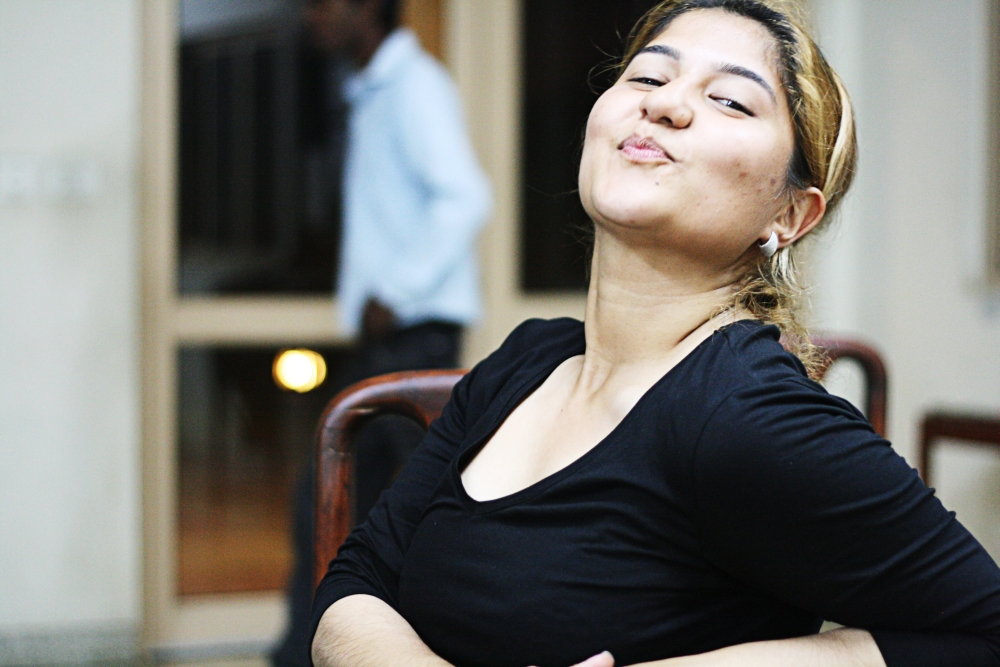What if you didn’t have to worry about what other people think of you? Does your body sigh with relief at the thought of all the freed up time and energy you’d have? Or do you seize up with fear or resistance to the idea?
Authenticity’s appeal is obvious, but how does a person even go about being fully authentic, anyway? Here are 3 tips to get started.
How to be you involves accepting, loving, and discovering who you are. --J. Marsh #BeYou Share on X
1. Become a truth teller.
Being authentic is, of course, at it’s core about being in total integrity with what is true for us. But most of us were not raised to be truth tellers, really–we were raised to people please. We were taught that white lies are totally okay. We were taught to pretend and perform and make nice.
But pretending–even if it is relatively meaningless, even if it is meant to protect someone else–is a form of lying.
And lying, even if we do it a lot, or are good at it, is very stressful to our brains and our body. The polygraph test depends on this: “Lie Detectors” don’t actually detect lies, but rather they detect the subconscious stress and fear that lying causes. These tests sense changes in our skin electricity, pulse rate, vocal pitch and breathing that the stress of lying causes. It’s as if all sorts of alerts go off when we lie, as if the body is howling for us to stop.
Fortunately, we become happier and healthier when we live our truth. It is also the only way to be authentic.
2. Let your body point you towards what is true for you.
Sometimes it feels really hard to know who we are and what we want. But fortunately, our body always already knows what we are feeling, even when we aren’t conscious of it.
Try listening to the feedback that your body is giving you right now. Say something really untrue out loud, preferably to someone else. Try something like “I love it when my boss humiliates me in front of my team,” or “I adore having the stomach flu.” Then notice: How does your body react? The response will likely be ever so slight: a minuscule pulling back; or tensing of your jaw; or a tiny shoulder raise. When I say something that my unconscious mind hates, my body tries to tell me through a little heaviness in my stomach. If I spend too long doing something that feels wrong for me, I end up with a stomachache.
Now try saying something out loud that is true for you, and notice your body’s reaction. Try something like “I love the ocean,” or “I love the feel of my baby’s head on my cheek.” How does your body respond? When I say something that is very true for me, or when someone else says it to me, I get “chills of truth”—the hair literally stands up on my arms. And if I’m grappling with something hard, but the right answer comes up for me, I get “tears of truth.” Tears that tell me that something is profoundly true feel qualitatively different than the tears that come from grief or hurt.
What is true for us tends to make us feel stronger and more free. And lies tend to feel like constraint and constriction–our shoulders ache, our back hurts, or our stomach churns.
3. Accept the “ugly” bits of yourself, including the difficult emotions.
“Being You” is massively different from being perfect, or being the best possible version of yourself. We are all human, and by definition that means that we are often messy and raw and wrong.
When we love only the parts of ourselves that we deem to be good or strong or smart, we reject the parts of ourselves that make us real. This sets us up for inauthenticity. We start hiding what is real and showing off what is sparkly, but our seeming perfection is fake.
The only thing to do with all our imperfections is to accept them with forgiveness and compassion. And also to accept how we feel about our flaws, which is probably not so good. This does not mean that we are resigned to never growing or overcoming our weaknesses. It just means that we can be our true selves on this path. As Leonard Cohen sings in “Anthem:”
Ring the bells that still can ring.
Forget your perfect offering.
There is a crack, a crack, in everything.
That’s how the light gets in.
Loving and accepting ourselves–and all our flaws, including our anger and fear and sadness and our pettiness–is, in the end, the only thing that enables us to be authentic. It is also the greatest gift that we can give ourselves. It is the reason that authenticity makes us happier and healthier and more connected to those around us.
If this post resonates with you, we hope you will join our Brave Over Perfect coaching group.
It’s only $20 to join our live coaching calls, thriving online community, and online resources. Upcoming call topics include:
- Tapping Into Your Inner Wisdom
- What To Do When Things Feel Uncertain
- How To Deal With Difficult People
We’ll talk about how we often need to muster considerable courage to lead our most authentic lives—and work together on just how to do that. Learn more or enroll now.

